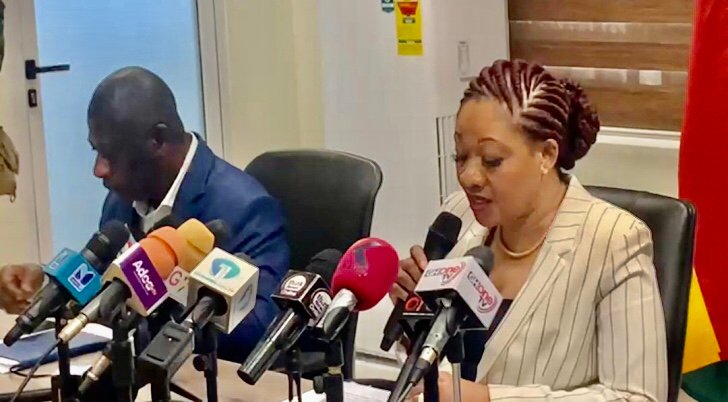The Electoral Commission (EC) of Ghana has made a significant decision, rejecting the parliamentary results from nine constituencies. This move has sent shockwaves throughout the country, with many wondering what this means for the future of Ghana’s governance.
According to reports, the EC has declared the election winner without results from these nine constituencies, sparking controversy and debate. The Commission has urged citizens to remain calm and allow them to officially declare the results. However, this has not stopped various groups and individuals from expressing their concerns and opinions on the matter.
The EC’s decision to reject the parliamentary results from these nine constituencies is a clear indication of their commitment to ensuring the integrity and transparency of the electoral process. By taking a stand against potential irregularities, the EC is demonstrating its dedication to upholding the principles of democracy and fairness.
One of the constituencies affected by the EC’s decision is Ablekuma North, where the New Patriotic Party (NPP) has rejected the parliamentary results. The NPP has cited irregularities and discrepancies in the voting process, which they believe have compromised the integrity of the election.
The EC’s decision has also been influenced by reports of violence and disruptions during the voting process in some constituencies. For instance, in Yendi, the voting process was reportedly disrupted, with ballot papers being destroyed and EC officials being assaulted. Such incidents have raised concerns about the safety and security of the electoral process.
As the situation continues to unfold, many are watching with bated breath to see how the EC’s decision will impact the future of Ghana’s governance. The Commission’s commitment to transparency and fairness is commendable, and it is hoped that their efforts will lead to a more stable and democratic political environment.
In the meantime, the EC has urged citizens to remain calm and allow them to officially declare the results. The Commission has also called on political parties and civil society organizations to support their efforts in promoting transparency and accountability in the electoral process.
The EC’s decision to reject the parliamentary results from nine constituencies is a significant development in Ghana’s electoral landscape. As the country continues to navigate the complexities of democracy, it is clear that the EC is playing a crucial role in ensuring the integrity and transparency of the electoral process.
The international community is also watching the situation closely, with many expressing support for the EC’s efforts to promote transparency and fairness. The European Union, for instance, has commended the EC for their commitment to democracy and human rights.
As Ghana looks to the future, it is clear that the EC’s decision will have far-reaching implications for the country’s governance and political landscape. The Commission’s commitment to transparency and fairness is a beacon of hope for a more stable and democratic future.
In conclusion, the EC’s decision to reject the parliamentary results from nine constituencies is a significant development in Ghana’s electoral landscape. The Commission’s commitment to transparency and fairness is commendable, and it is hoped that their efforts will lead to a more stable and democratic political environment. As the situation continues to unfold, one thing is clear: the EC is playing a crucial role in shaping the future of Ghana’s governance.
Source: Africa Publicity








